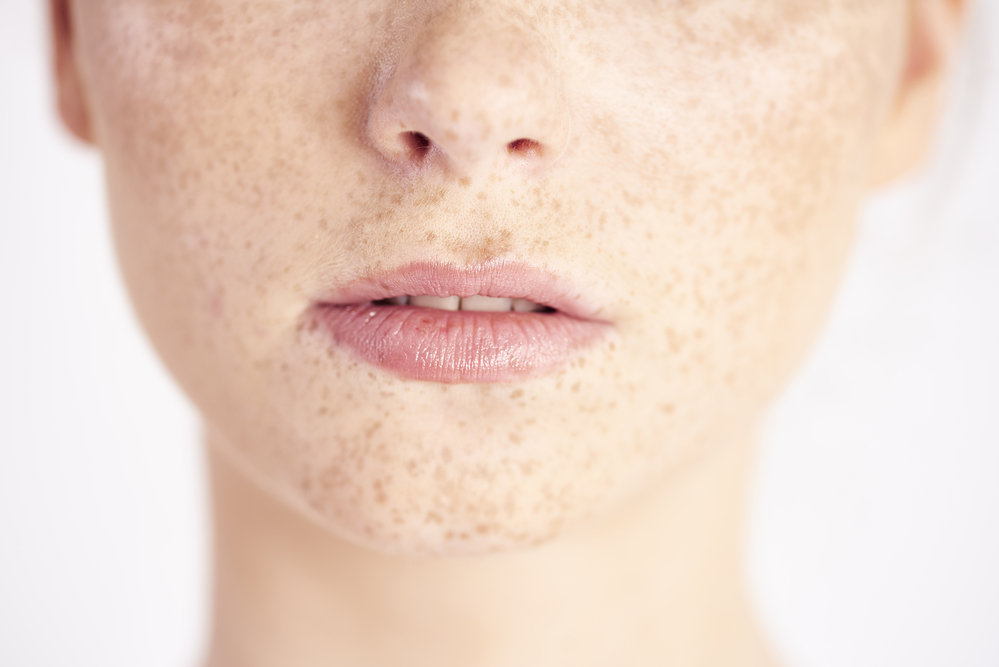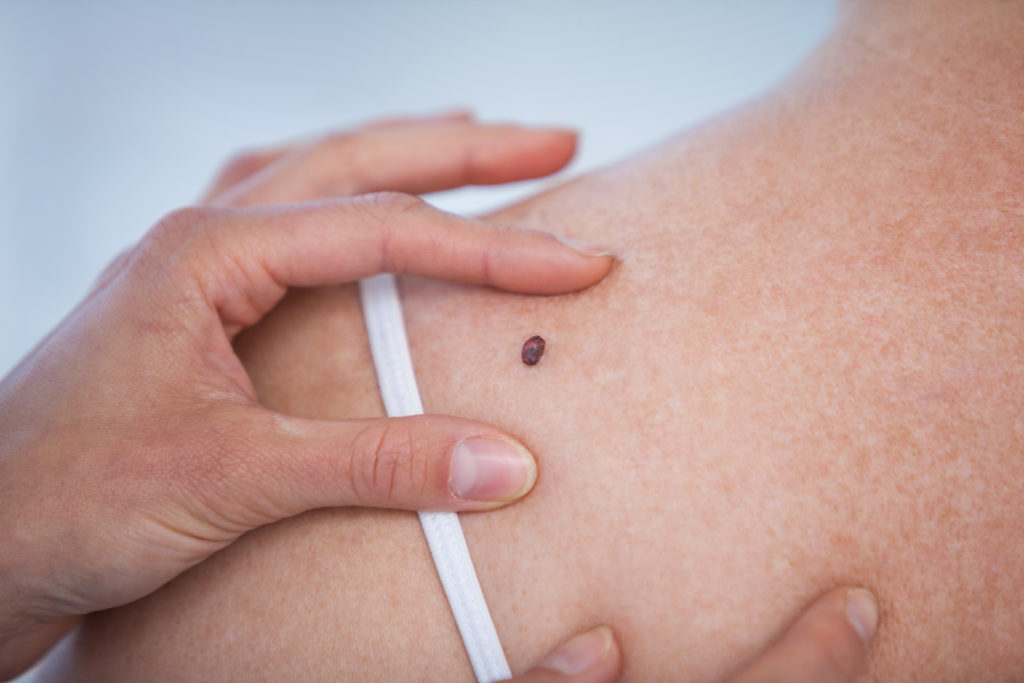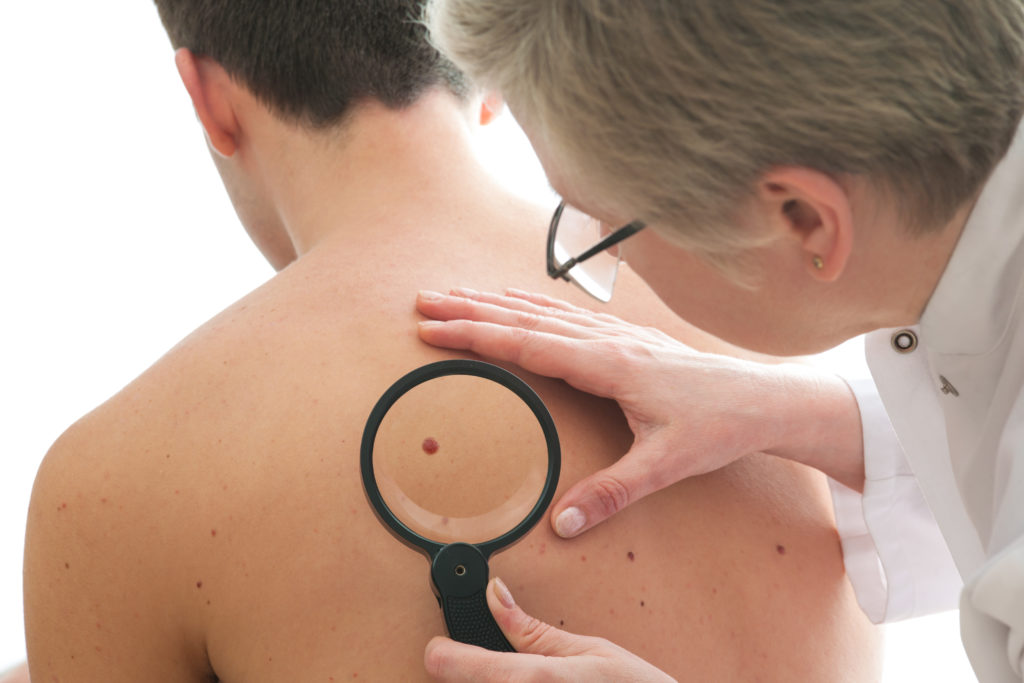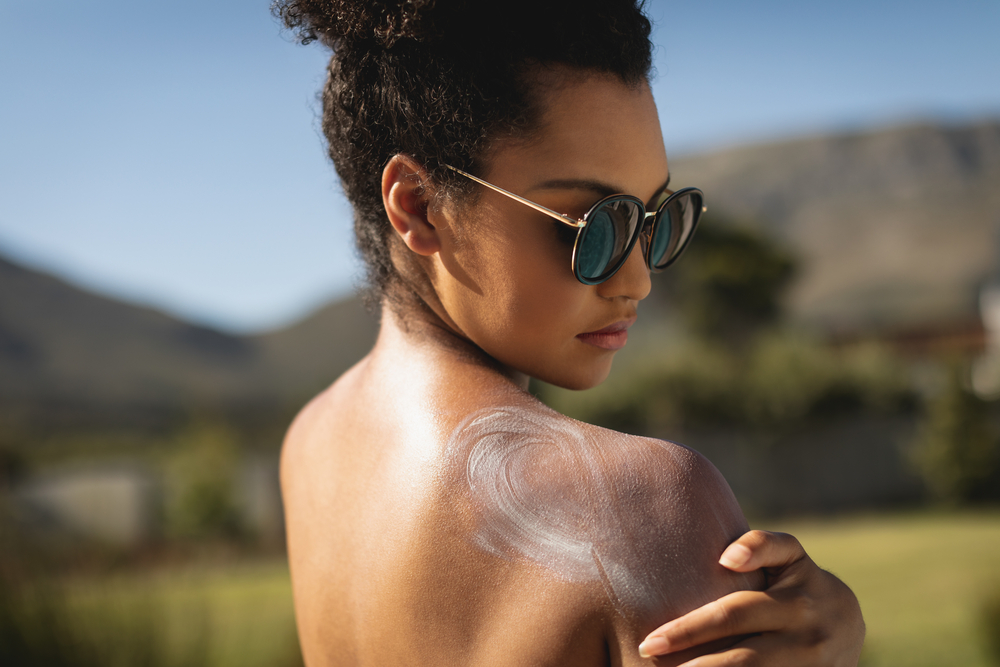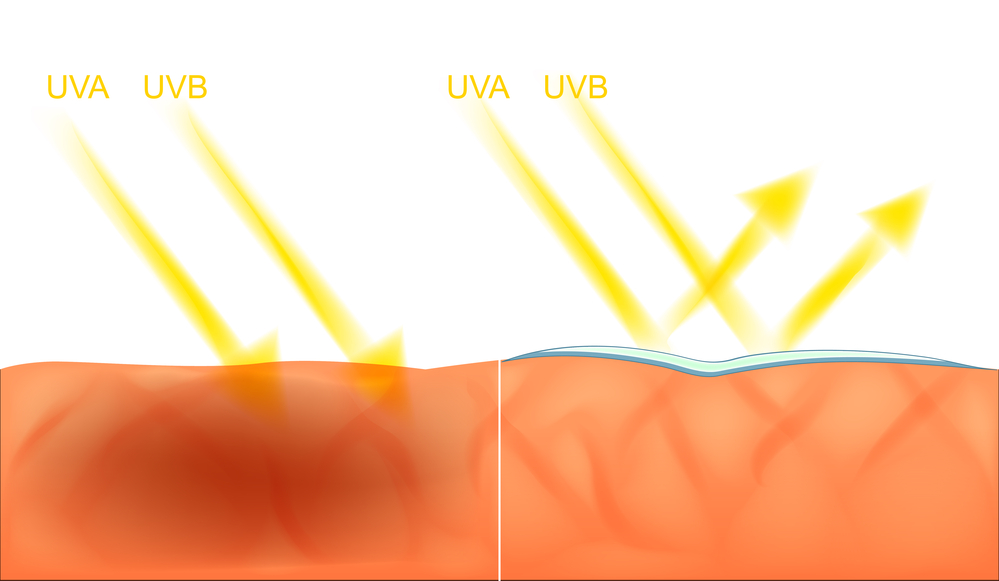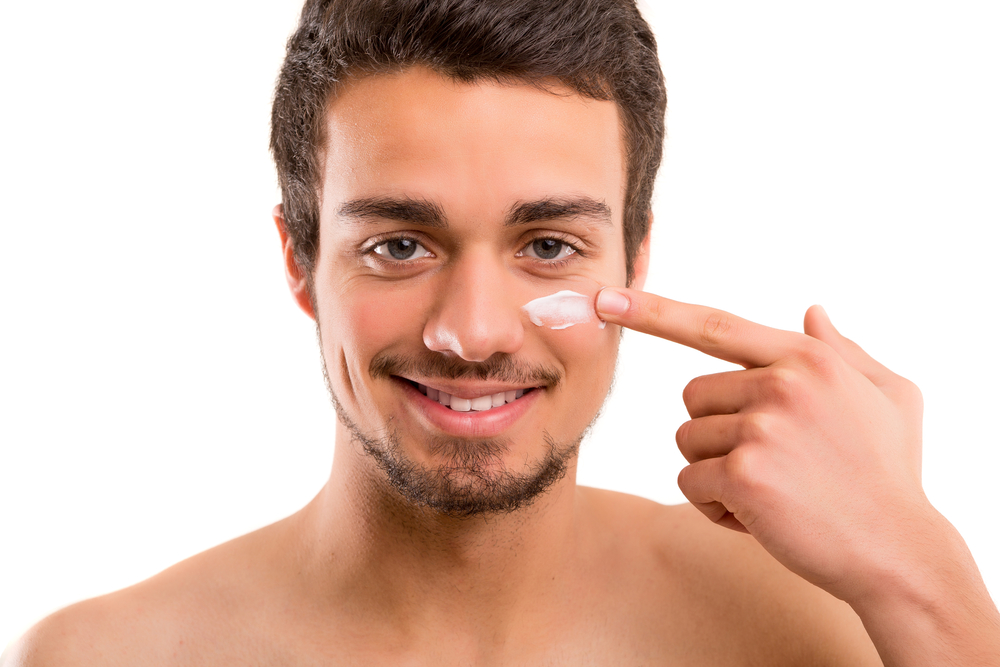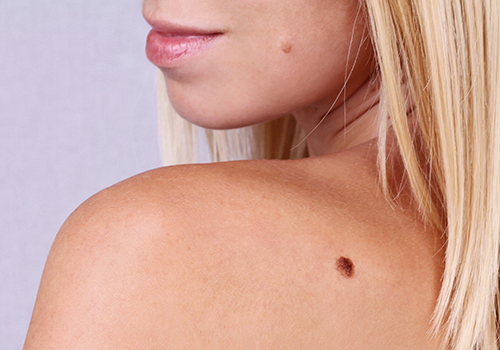Cancer has a high mortality rate, so if you or one of your loved ones has been diagnosed with skin cancer, it’s natural to be concerned. While you need to ensure that you catch and treat skin cancer early on, most types of skin cancer are not deadly. Other types can be, if allowed to progress far enough.
Here is what you need to know about skin cancer on the face, how it develops, how treatable it is, and what the most common types of skin cancer on the face are.
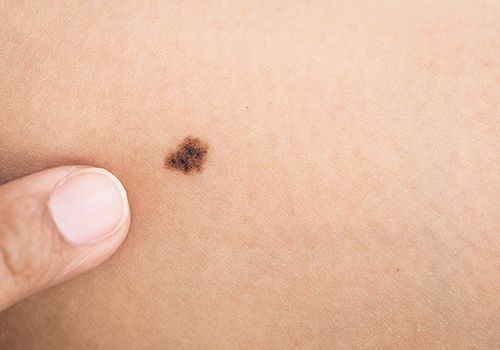
How Does Skin Cancer On The Face Develop?
Skin cancer is the abnormal growth of skin cells that most often develops on skin that has been sun-damaged, although it can also occur on skin that does not typically get sunlight. Skin cancer may spread to other parts of the body.
People of all skin tones can get skin cancer. People with darker skin who get skin cancer typically get it in areas that are not normally exposed to the sun, such as the soles of your feet or the palms of your hands.
How Treatable Is Skin Cancer?
Most skin cancer can be cured if treated early enough and before they get the chance to spread. However, advanced cases of melanoma can be fatal. The earlier you obtain treatment, the better.
When found early, skin cancer is highly treatable. The dermatologist can typically remove the cancer. However, the longer skin cancer is left untreated, the more difficult it is to treat. Most skin cancers can be removed before they get the chance to spread.
While some skin cancers grow slowly, melanoma can grow very fast, becoming life-threatening in as little as 6 weeks. As such, it’s important to screen your skin regularly and see your dermatologist if you have any concerns.
How To Reduce Your Risk Of Skin Cancer
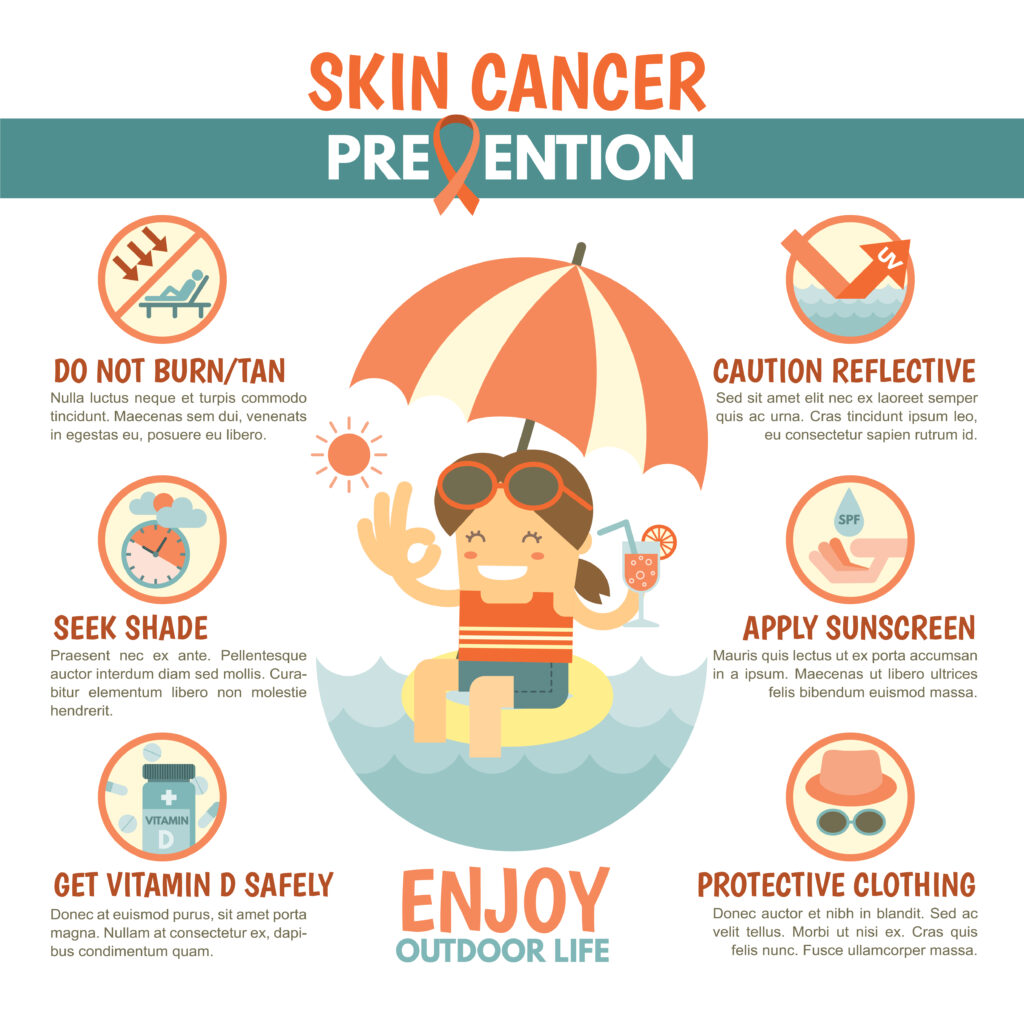
The best way to reduce your risk of skin cancer is to ensure that you protect your skin from UV radiation.
This means avoiding tanning beds, wearing sunscreen every day, avoiding going outside during peak sun hours (10am-3pm), wearing long-sleeved shirts and long pants and hats, and the like. Checking your skin regularly for any abnormalities and seeing your dermatologist for screenings or anything that raises concern can help you catch skin cancer early on.
The earlier you catch skin cancer on the face or elsewhere, the greater your chances are for successful treatment.
Risk Factors For Skin Cancer
People of all skin tones can get skin cancer. It typically shows up later in life. Knowing your risk factors helps you do what you can to try to combat your risk for getting skin cancer.
Risk factors include:
- Fair skin
- Moles
- Family history of skin cancer
- Personal history of skin cancer
- History of sunburns
- Excessive sun exposure
- Being exposed to arsenic
- Having long-lasting skin inflammation
- Exposure to radiation
- Sunny/high-altitude climates
- Weakened immune system
Your risk of skin cancer increases with age.
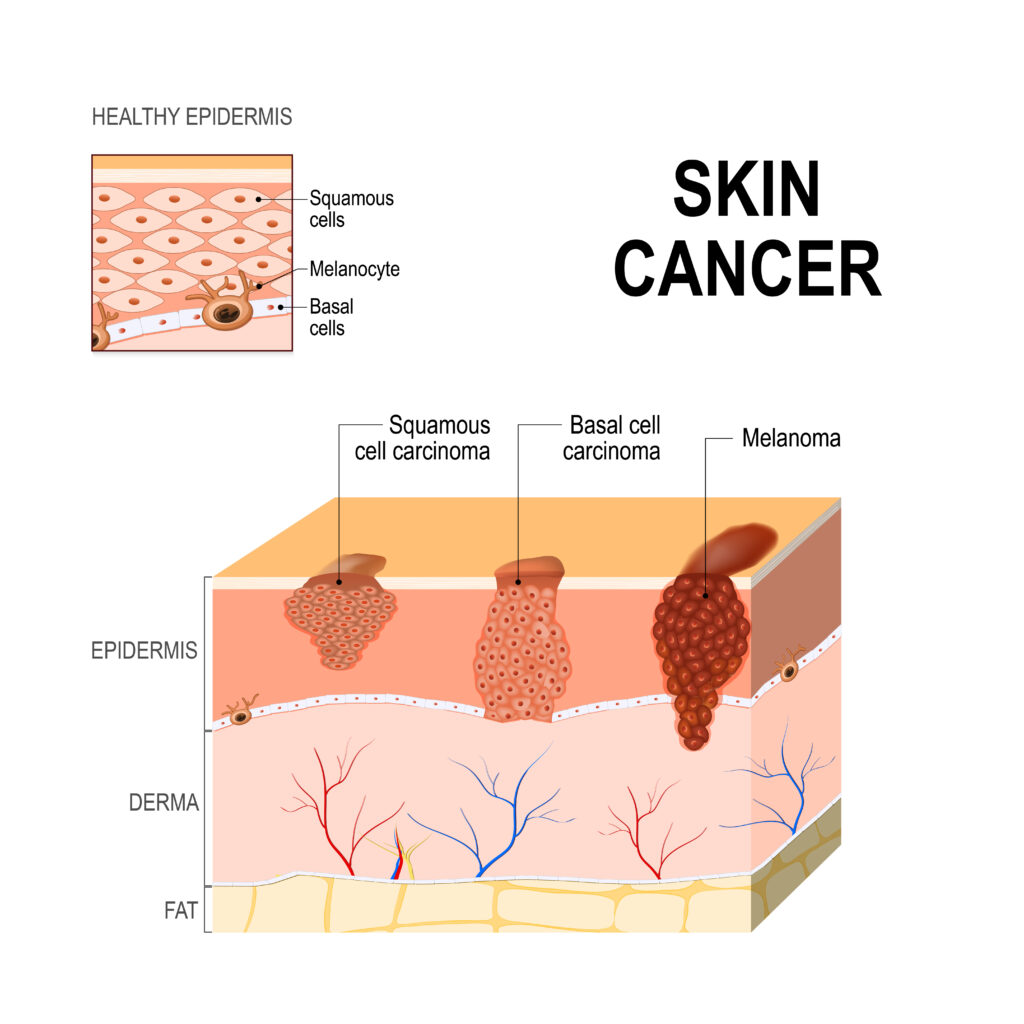
Types Of Skin Cancer On Face
Skin cancer starts at your skin’s top layer and works its way deeper. There are three main types of skin cancer: squamous cell carcinoma, basal cell carcinoma, and melanoma.
Squamous cells are just below the outer surface/skin’s inner lining. Basal cells produce new skin cells and are just beneath squamous cells. Melanocytes produce melanin and are the lower part of your epidermis.
Squamous Cell Carcinoma
If you have lighter skin, this type of skin cancer is most often seen on areas like your face that get a lot of sun. If you have darker skin, this type of skin cancer usually appears on areas that don’t get much sun.
This looks like firm, red nodules, almost like pimples, or flat lesions with scaly, crusty surfaces. This usually grows slowly, but certain forms may grow faster.
Basal Cell Carcinoma
This usually occurs on areas of your skin that get exposed to the sun, such as your face. This type of skin cancer on the face looks like pearly/waxy bumps, flat lesions, or bleeding/scabbing sores that heal and then return. This grows slowly, but may grow deeper.
Melanoma
This is the most likely to be deadly type of skin cancer on the face. This can develop anywhere on your body on either otherwise normal skin or a mole that has become cancerous.
People with darker skin tones usually get melanomas on their palms, soles, or under their fingernails or toenails. In people with lighter skin, men usually get melanomas on their face or torso while women usually get them on their lower legs.
It looks like a large brownish spot with darker spots, a mole that has changed color/size/feel/that bleeds/has an irregular border/discolorations, etc. If you suspect that you have a melanoma, it’s crucial that you see your dermatologist right away, as this is the type of skin cancer that can be deadly.
Treatment Options For Skin Cancer On Your Face
You can discuss treatment options with your dermatologist. Treatment varies depending on the type of skin cancer that you have and how far along it is. Depending on where on your face the skin cancer is, it may be more difficult to treat, such as on your eyelid or your nose.
Treatment typically involves removing the cancer, while some treatments involve laser surgery, cryosurgery, photodynamic therapy, etc. If the cancer spreads, chemotherapy may be recommended.
Your dermatologist cares about preserving your appearance, the same as you do. This is why skin cancer on the face can be challenging, as your dermatologist wants to get rid of the cancer while also achieving cosmetic results without challenges to facial functionality.

Are You Concerned About Skin Cancer?
Allen-Taintor Dermatology is here to help. Contact us today to schedule an appointment for a screening and to go over any questions you may have.


